 There’s a Republican alternative to Obamacare – a health insurance plan rolled out today by Louisiana Governor Bobby Jindal. It’s not only a better plan, but starts with a better way to think about how we pay for healthcare.
There’s a Republican alternative to Obamacare – a health insurance plan rolled out today by Louisiana Governor Bobby Jindal. It’s not only a better plan, but starts with a better way to think about how we pay for healthcare.
The Search For A Republican Alternative
One of the hoary, beaten-to-death talking points of Obamacare’s last-ditch defenders has been that it’s impossible to repeal the Affordable Care Act because there isn’t an alternative on the table. Of course, while there are some transitional issues that would arise in unwinding the damage Obamacare has done to the pre-Obamacare insurance market, if you believe (as most Obamacare critics do) that the statute has made things on balance worse, then there’s no reason why Congress couldn’t or shouldn’t first tear the thing up and then get to work finding a different way to improve our healthcare system. And part of what is at work in this line of criticism is the Wonk Hack Trap: the desire of liberal policy writers and Democratic ad-makers to force Republicans to submit detailed plans to be picked apart with one-sided propaganda before there is any realistic prospect of them even being seriously debated, and possibly improved, in Congress (see this Jonathan Chait piece on the 2015 Ryan budget for a classic example of the genre – of course, with Harry Reid running the Senate, no Republican policy proposal has any prospect of being considered for a vote).
But as Ben Domenech has noted, there are actually a number of principles that already attract the consensus support of most Republican lawmakers:
1. They want to end the tax bias in favor of employer-sponsored health insurance to create full portability (either through a tax credit, deductibility, or another method);
2. They want to reform medical malpractice laws (likely through carrot incentives to the states);
3. They want to allow for insurance purchases across state lines;
4. They want to support state-level pre-existing condition pools;
5. They want to fully block grant Medicaid;
6. They want to shift Medicare to premium support;
7. They want to speed up the FDA device and drug approval process; and
8. They want to maximize the health savings account model, one of the few avenues proven to lower health care spending, making these high deductible + HSA plans more attractive where Obamacare hamstrung them.
The best time to put such plans on the table is in a presidential campaign, or when the party holds both Houses of Congress (as it may next year, but does not now) and can pass at least parts of it and force the President to veto. Unfortunately, in 2012, Republicans were unable to offer a forceful message on this issue, because their candidate had already signed into law a plan nearly identical to Obamacare at the state level, and was generally interested in avoiding discussion of specific plans. Many Republicans would prefer to just stay silent for now, at least until 2015, in hopes of capitalizing on longstanding voter dissatisfaction with Obamacare. But with the Senate up for grabs and potential presidential candidates beginning to gear up, Governor Jindal has decided that it’s time to put his cards on the table with a plan that includes many of these elements and some specific ideas of his own.
Jindal is already a veteran of the healthcare wars. In 1996, he was appointed – at age 24 – as Secretary of the Louisiana Department of Health and Hospitals, running the entire state hospital system, and in 1998 he served as Executive Director of the National Bipartisan Commission on the Future of Medicare, a Clinton-created bipartisan commission. A bipartisan majority of the commission ended up recommending a “premium support” plan for Medicare reform based on a model that Jindal had originally put together as a Congressional intern – a plan that (in varying forms) has resurfaced in Paul Ryan’s annual budget proposals. Jindal went on to work as a policy advisor to Tommy Thompson in the Bush-era Department of Health and Human Services before his tenure as a Congressman and Governor, and he’s been engaged in healthcare issues in his two terms as Governor of Louisiana. So, his plan is not merely a thrown-together campaign document, but represents his long-term thinking about how to approach healthcare.
The Jindal Plan
You can read the full 21-page plan document here, the 3-page Executive Summary here, Gov. Jindal’s op-ed here, and overviews from Robert Costa and Amy Goldstein at the Washington Post and Benjy Sarlin at MSNBC.
Jindal takes as his starting point that Obamacare would be repealed root and branch, a goal that will be music to the ears of GOP primary voters, but will focus the attention of the many voters who despise Obamacare but want some reassurance that Republicans won’t simply replace it with a desert sowed with salt. The theory of his replacement is as important as its details, many of which would surely have to be negotiated with Congress even if Jindal wins the presidency.
At a conceptual level, Jindal’s plan – like most GOP proposals – diverges from the outset from plans like Obamacare-Romneycare-Hillarycare that promise “universal” coverage and set out to achieve it by (1) forcing people against their will into common insurance pools, (2) forcing insurance companies against their will into insuring all comers, (3) forcing employers to provide health insurance to certain of their employees, (4) in the case of how Obamacare was originally designed, forcing states to follow federal dictates in how and to whom they provide Medicaid, and (5) dictating in minute detail the terms on which all of these compelled interactions are carried out. Even with all of those mandates, even the optimistic CBO projections at the time the Affordable Care Act was passed estimated that the bill would reduce the uninsured population only from 54 million to 23 million by 2019, and those projections have grown less rosy over time, reminding us that universal burdens on the public do not guarantee universal compliance. Rather than chase the chimera of a one-size-fits-everyone plan that will never actually fit everyone, Jindal’s plan revives the premise of our pre-Obamacare healthcare system (where over 80% were insured and about 85% of the insured were happy with their health insurance) and seeks to create the conditions of lower cost and more competition that will entice more people to voluntarily choose a health insurance plan. If this sounds like a familiar concept to you, it’s because that’s how the rest of the American economy works, and always has.
From his perspective as a Governor, Jindal also wants to reverse the centralization of power over health insurance in Washington, and create competition between states to offer better health insurance. Thus, in place of having mandatory federal rules (for Medicaid, for insurers, for employers, and for individuals) that are subject to waivers and delays at the whim and favor of the President and HHS, he would write more latitude for states directly into law, block-granting Medicaid funds and reducing the federal role to holding states accountable for outcomes rather than micromanaging their process (spoiler alert: Jindal has strongly signalled that this will also be his approach to education). Sarlin frets that this permissive approach “might just spawn dozens of mini-Obamacares at the state level,” but at least that would be those states’ choice, and in a blogger conference call this afternoon, Jindal stressed that by allowing insurance policies to be sold across state lines, he would rely on competition to incentivize states to avoid imposing an unreasonable volume of mandates.
For individuals who can afford their own healthcare, Jindal would step back and give them more tools to take control: a tax deduction on par with the employer deduction, and more health savings accounts to encourage people to be more involved in the costs of healthcare. Jindal is less interested than Obama in enrolling healthy, childless adults above the poverty line in Medicaid. But for those who legitimately cannot afford healthcare, Jindal’s plan recognizes that government is too involved to simply walk away: he’s proposing separate high-risk pools for people with pre-existing conditions, and focusing on making sure Medicaid focuses the safety net on those most in need. He would also keep in place the pre-Obamacare laws guaranteeing the continuation of coverage when you change jobs once you have insurance, regardless of whether you’ve gotten sicker since first enrolling. Jindal argues that Obamacare has undermined these protections.
Some of Jindal’s proposals are things that could be enacted now at the state level already, or proposed piecemeal at the federal level in 2015, and much of it could be enacted in stages rather than in one swoop. That’s a strength: it would enable him to avoid another thousand-page omnibus bill infested with hidden goodies, and provides some intermediate goals for activists to focus on between now and 2016. But it also means that at least some of his proposals (like tort reforms at the state level) would be beyond his reach to command even from the White House.
Medicare premium support, whether as a voluntary supplement to the current system or a phased-in replacement, will be more controversial, and Jindal’s plan isn’t entirely explicit on how it would approach that thorny problem. Nor is this a complete plan with all the accounting gimmickry needed to pass the CBO’s arcane rituals for deficit scoring; the sacrificing of the required number of goats and chickens to satisfy the CBO models will have to wait. And Jindal’s promise of more pro-life and conscience protections, while popular with social conservatives, will likewise test his fortitude if he makes it far enough to propose actual legislation. But as far as frameworks go, this is already a fairly detailed view of where Jindal wants to take American healthcare into the post-Obamacare world.
Follow The Leader
As I’ve noted before, Republicans and conservatives shouldn’t fall in love with any one candidate this far ahead of 2016, and given the plethora of potentially attractive candidates and the roiling debate within the party over a variety of policy issues, we should be more rigorous than usual in demanding that potential candidates make the case for a policy agenda that has some realistic prospect of being put into action. Personally, if forced to choose at this writing, I would rate Jindal and Scott Walker as my top two choices, in that order – but there’s a lot yet to happen, and we are not particularly close to even knowing who will and won’t run (Jindal and Rand Paul are probably the two potential candidates who have given the strongest indications of interest, but many others – including Walker, Ryan, Ted Cruz, Jeb Bush, Marco Rubio, Chris Christie, Rick Perry, Rick Santorum, Mike Huckabee, Peter King, John Kasich and Joe Scarborough – seem to be floating trial balloons). While it’s a plus for Jindal that he has a head start in rolling out a reasonably fleshed-out policy agenda on the signature policy issue of the Obama years and the experience to back it up – a head start that will force other potential 2016 aspirants to play catch-up – the more important thing is that he is kick-starting the serious business of having a real policy debate that will move us towards the common goal of repealing Obamacare and offering an alternative. And that will benefit the nominee in 2016 regardless of who it is.


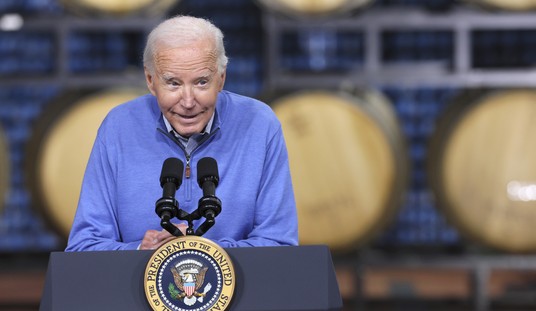


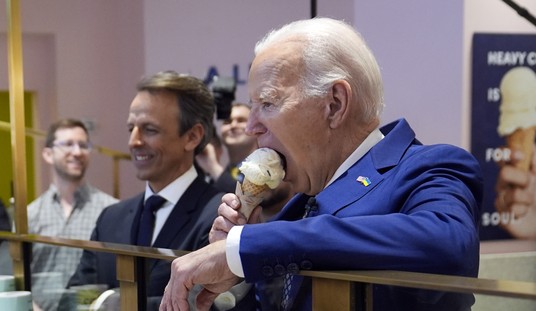
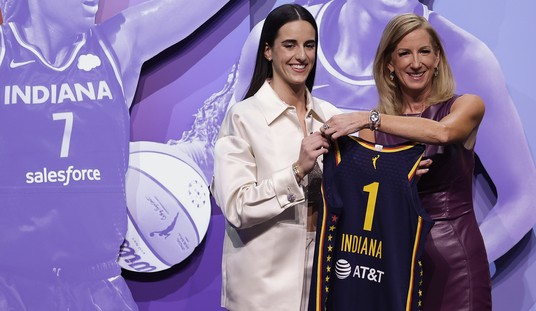


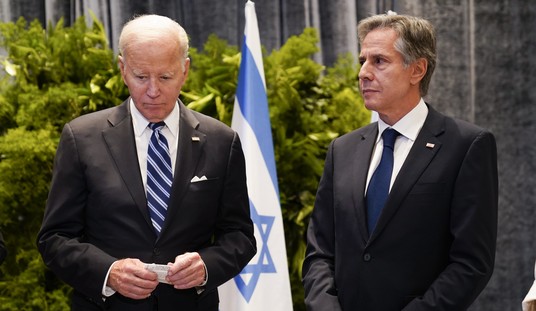

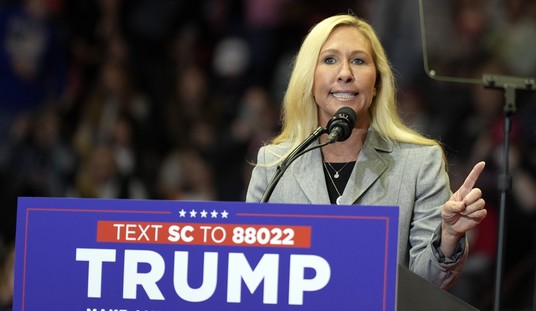

Join the conversation as a VIP Member